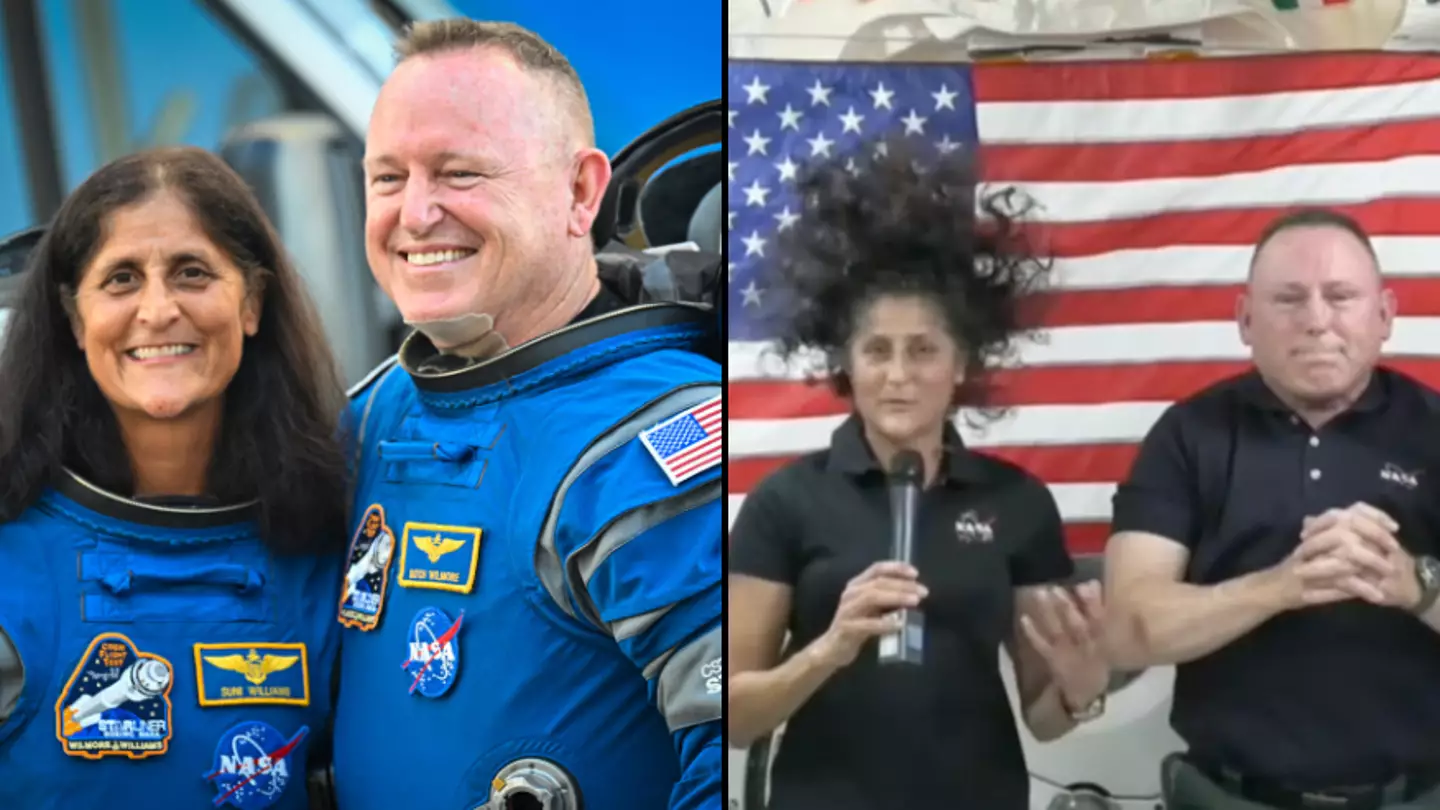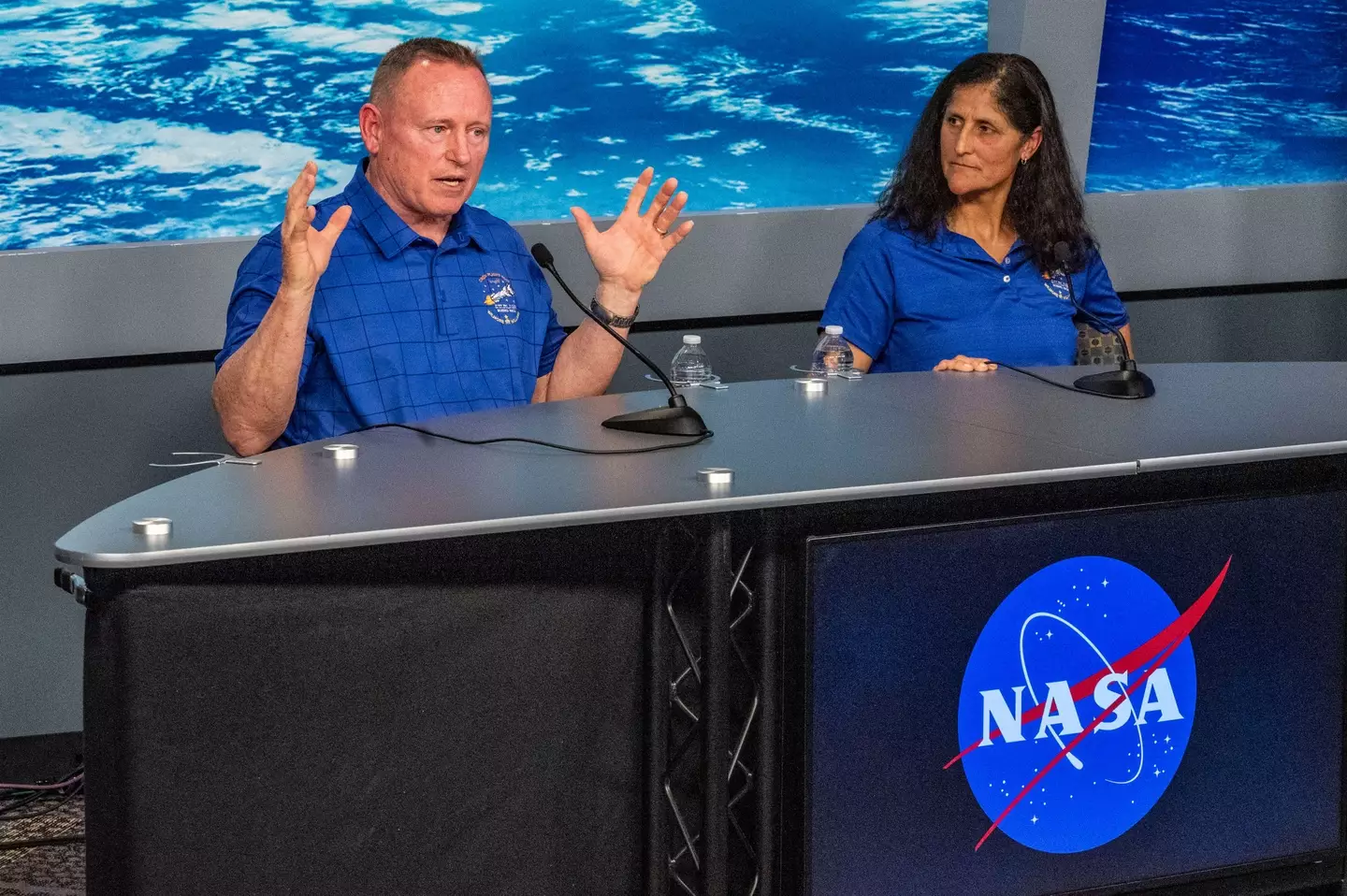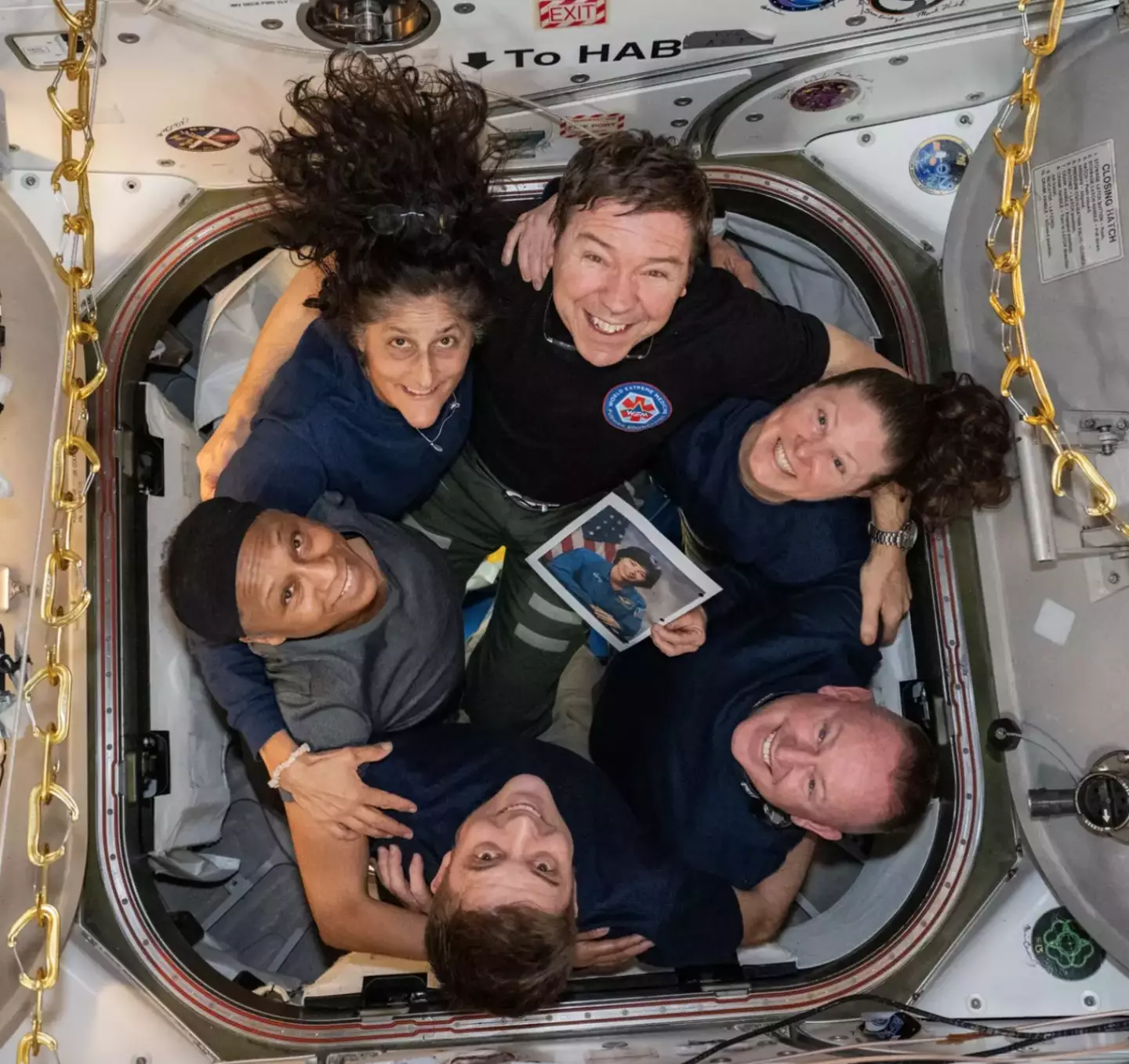
Two astronauts currently stranded on the International Space Station (ISS) risk 'life-altering' side effects if they stay in space until 2025, experts warn.
On 5 June, NASA test-pilots Barry 'Butch' Wilmore and Sunita Williams set out on an eight-day trip to the ISS.
However, the new Boeing Starliner capsule that was supposed to bring them home experienced a number of technical issues, leaving the pair stranded until NASA is able to come up with a solution.
Advert
The space agency has been working tirelessly to find a way to bring Wilmore and Williams home, but revealed in a statement earlier this week that this could be as late as next year.
NASA’s Commercial Crew Program manager Steve Stich explained on Wednesday (7 August) that the duo's only choice could be to hop on the return flight of another mission in February 2025.
"We have been working with SpaceX to ensure they are ready to respond with Crew-9 as a contingency," Stich said.
"We have not formally committed to this path, but we wanted to ensure we had all that flexibility in place.
"Our prime option is to return Butch and Suni on Starliner. However, we have done the requisite planning to make sure we have other options open.
"I think Butch and Suni are ready to do whatever we need them to do."

If it were to come down to this option, the astronauts will have been on the ISS for eight months by the time they return to Earth.
But this could pose a major risk to their health as their bodies could start deteriorating the longer they are in space.
Rachael Seidler, a professor of Applied Physiology and Kinesiology at the University of Florida, told DailyMail.com: "Generally, almost all of the changes that we see with human spaceflight in terms of physiology seem to be dose dependent.
"The longer you're there, the bigger the change - at least up to a point."
Living in reduced gravity means the body's bones and muscles aren't working as hard as they should be. This can lead to a loss in bone density and muscle atrophy.

"Astronauts experience accelerated bone loss at an alarming rate - about 12 times faster than severe osteoporosis on Earth," Kyle Zagrodzky, founder and CEO of bone health clinic Osteostrong, told Newsweek.
"Osteoporosis increases fracture risk, often leading to life-altering injuries."
Additionally, astronauts on long duration space missions can lose up to 50 percent of their muscle mass, according to the European Space Agency, affecting their ability to do physically demanding activities and causing great pain.
Other concerning health risks Wilmore and Williams could face include changes to the shape and function of their hearts, vision problems and intense radiation exposure.
Each day they spend on the ISS will do more damage to their bodies, so the sooner NASA can get them home, the better.
